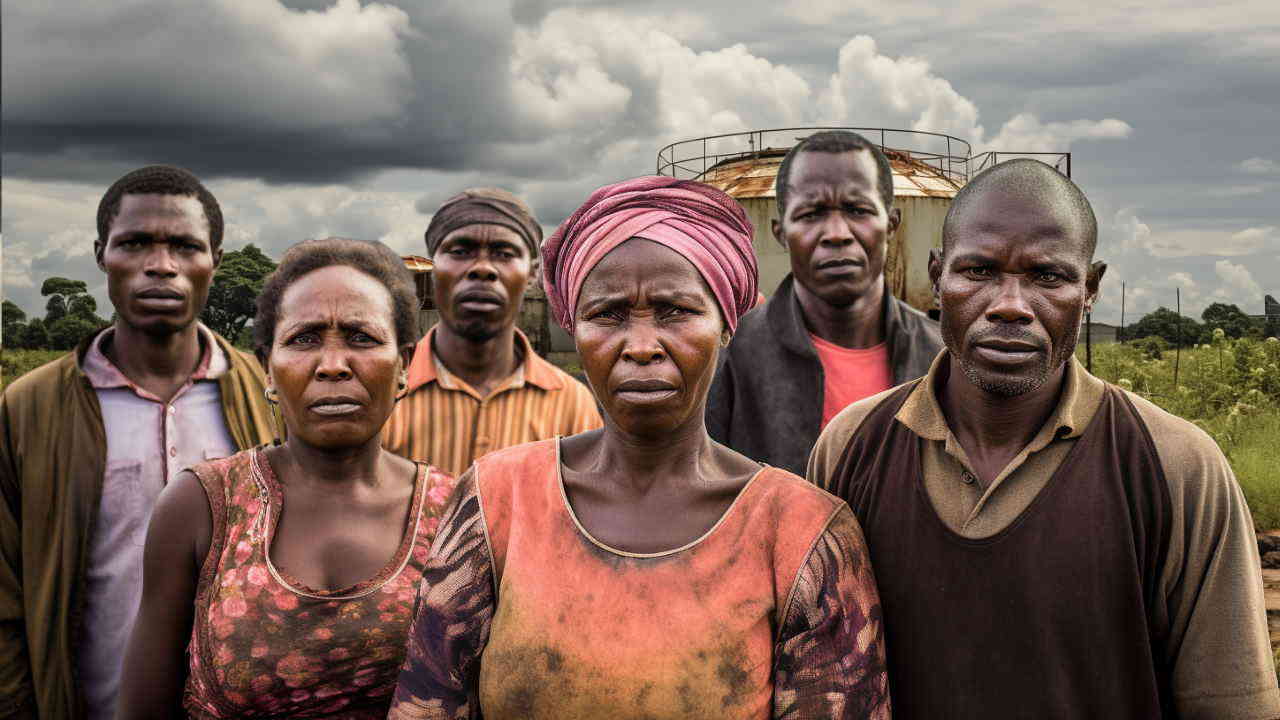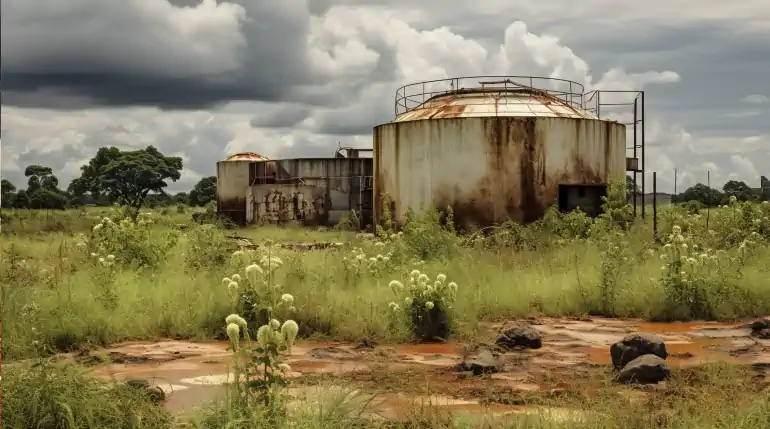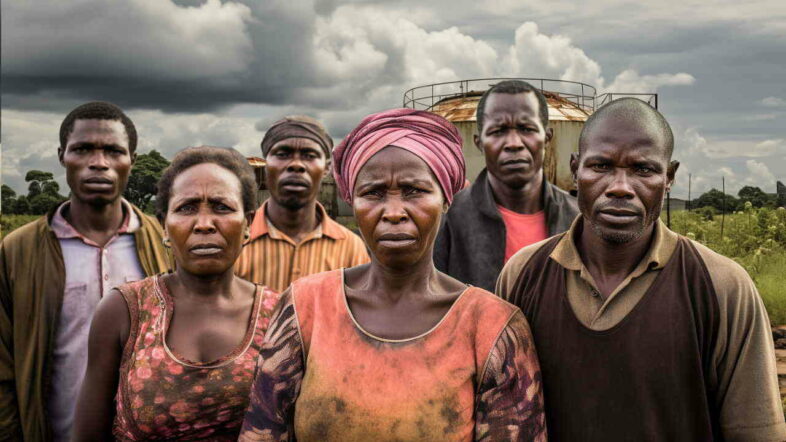A number of researchers have been highlighting a dark side to the continuing use of biogas development aid in Africa. That lies in literally hundreds of unseen unreported failures of international development agency-funded biogas projects in Africa. But, the problem is far from limited to Africa and is happening in many other developing nations as well.
We make a call for far greater transparency of this problem. The unseen failures of biogas projects are brutal for those involved because they take the local people involved in a crushing journey from hope to despair.
The story of failed biogas projects in developing countries must stop now. The only way to do that is for the agencies involved to fully report on, analyse, and learn the necessary lessons of failure.
Investing in failure is simply not good enough.
[boomdevs_toc]
Introduction to the Dark Side of Biogas Development Aid
Biogas, a renewable energy source produced from the anaerobic digestion of organic waste, has been heralded as a solution to many of the energy challenges faced by developing nations. In Africa, biogas projects have been touted as a way to improve energy security, mitigate climate change, and promote sustainable development.
Over the past two decades, African and other developing nation governments, private individuals, and, most conspicuously, international aid agencies and donors have spent immense amounts of money on countless biogas projects across the world.
Yet, despite these investments, biogas has not taken off in these countries, and the developing world is strewn with the ruins of hundreds of failed and abandoned biogas projects.
Moreover, the scholarly literature contains little feedback about what actually happens on the ground, including its blind spots on project outcomes and failures.
This article aims to provide a critical engagement with the potential and practice of biogas investment mostly using examples in Africa, drawing on a critical reading of the literature and a call for more transparency when biogas projects go wrong.

The Promise of Biogas
Biogas technology has been promoted as a way to address several critical challenges faced by developing nations.
First, it provides a renewable source of energy, reducing dependence on non-renewable resources like fossil fuels.
Second, it offers a way to manage organic waste, reducing pollution and promoting environmental sustainability.
Third, it has the potential to reduce greenhouse gas emissions, contributing to global efforts to combat climate change.
Finally, biogas projects can provide economic benefits by creating jobs and promoting local development.
These benefits are so important and are being ever more successfully realised in the developed world that the benefits simply have to be transferred across international boundaries.
The Reality of Biogas Projects: The African Example
Despite the promising potential of biogas technology, the reality on the ground in many African countries has been disappointing. A study by Ali et al. (2020) mapped the biogas production potential from livestock manures and slaughterhouse waste in African countries and found that, despite the significant potential, the actual production of biogas is far below its potential.
Another study by Bär et al. (2021) developed scenarios for the future of charcoal, firewood, and biogas in Kitui County and Kilimanjaro Region and found that, despite the potential benefits of biogas, its adoption faces significant challenges.
Failure Factors
Many factors contribute to the failure of biogas projects in Africa.
First, there are technical challenges related to the local capability in the design and construction of biogas plants. For example, a study by Bekchanov et al. (2019) found that the slow adoption of biogas technology in Sri Lanka was due to unresolved technical challenges, among other factors.
Second, there are financial challenges related to the cost of biogas plants and the availability of funding. A study by Bensah et al. (2011) found that the high cost of household biogas plants was a significant barrier to their adoption in Ghana.
Third, there are institutional challenges related to the capacity of local institutions to adequately manage and support biogas projects. A study by Bößner et al. (2019) found that institutional challenges were a significant barrier to the uptake of biogas in Bali.
Unveiling the Failure of Biogas Projects
The failure of biogas projects is not a problem unique to Africa. It is a common issue faced by many developing countries around the world.
For example, in Indonesia, Budiman (2021) highlighted the complexity of barriers to biogas digester dissemination, including challenges related to agricultural waste management.
Similarly, in China, Chen et al. (2017) noted the challenges faced by household biogas CDM (Clean Development Mechanism) projects, including technical and financial barriers.
The failure of biogas projects in developing countries can be attributed to a combination of technical, financial, and institutional challenges:
- Technical challenges include the design and construction of biogas plants using indigenous skills, the availability and quality of the available feedstock, and the ability to adequately maintain and operate biogas systems.
- Financial challenges include the high upfront cost of biogas plants, the availability of funding, and the economic viability of biogas production.
- Institutional challenges include:
- the capacity of local institutions to manage and support biogas projects,
- the availability of knowledge of the biological process and how to keep the biomass healthy among plant operators,
- a lack of a pool of knowledgeable skilled labour, and
- the lack of a regulatory framework for biogas production to ensure the health and safety of site workers, the responsible use of the digestate for landspreading, and avoidance of environmental risk.

Why So Many Repeated Failures?
That the lessons of failure are not being learnt, is clear from the degree of repetition. It has to be seen as clearly evident from this that another significant factor contributing to the failure of biogas projects is the lack of transparency and accountability in the implementation and management of these projects.
Many biogas projects are funded by international aid agencies and donors, who often have limited oversight and accountability for the projects they fund.
For example, Boyd (2012) examined the case of biogas technology in South Africa and found that the international UNFCCC technology mechanisms lacked transparency and accountability, leading to the failure of biogas projects.
Similarly, Bruun et al. (2014) highlighted the potential climate risks of small-scale household biogas digesters and called for more transparency and accountability in the development and implementation of biogas projects.
The Need for Transparency and Accountability
The failure of biogas projects in Africa and other developing countries highlights the urgent need for more transparency and accountability in the development and implementation of biogas projects.
Transparency is essential to ensure that all stakeholders, including local communities, governments, and donors, have access to accurate and timely information about the progress and challenges of biogas projects.
Accountability is crucial to ensure that all stakeholders, including project developers, contractors, and funders, are held responsible for the success or failure of biogas projects.
Stop! Now Tell me Biogas Development Aidin Plain English What You Mean by “Transparency and Accountability”
OK. Here is my attempt at plain English writing:
- Gaining Trust: When folk can see what's going on and that decisions are being made for the right reasons, they start to trust the people in charge a bit more.
- Stopping Dodgy Dealings: If everything's out in the open, it's a lot harder for the people in charge to be up to no good. And if they do try anything funny, they'll have to answer for it, which helps to stop them from even trying in the first place.
- Making Better Choices: When everyone can see what's going on and have their say, it usually leads to better decisions being made. It means that everything has been thought about properly and everyone's views have been considered.
- Getting Everyone Involved: When people know what's happening, they can get involved in making decisions. This means that the decisions that are made are more likely to be the right ones for everyone.
- Doing a Good Job: When people know they'll have to answer for what they've done, it usually means they'll do a better job in the first place.
- Looking After People's Rights: When everything's out in the open and people have to answer for what they've done, it's a lot easier to make sure everyone's being treated fairly.
- Sorting Out Problems: Being open about what's going on can help to stop problems before they start. And if there are any problems, being accountable means that they get sorted out properly.
- Having a Good Name: When people can see that everything's being done properly and for the right reasons, they're more likely to have a good opinion of the people in charge.
- Helping the Economy: When things are done properly and everyone knows what's going on, it helps to build confidence and makes things better for everyone in the long run.
- Encouraging Doing Right: When people know that others can see what they're doing and that they'll have to answer for it, it usually encourages them to do the right thing.
So, all in all, being open and having to answer for what you've done is good for everyone. It helps to build trust, stop dodgy dealings, and make sure that everything's being done for the right reasons.
Is that easier to understand?
So, How Can Biogas Project Transparency and Accountability be Improved?
There are several ways to improve transparency and accountability in biogas projects.
First, there should be a clear and transparent process for the selection and approval of biogas projects, including a thorough assessment of the technical, financial, and institutional feasibility of each project.
Second, there should be regular monitoring and evaluation of biogas projects to assess their progress and identify any challenges or issues that need to be addressed. This is best done by a recognised arms-length organisation of high integrity so that people can be sure that mistakes will be used as lessons for the future and not covered up.
Third, there should be clear and transparent reporting of the results and outcomes of biogas projects, including any failures or challenges faced. All results need to be published online to clear deadlines with free access made available to all.
Finally, there should be a mechanism for holding all stakeholders accountable for the success or failure of biogas projects, including penalties for non-performance or misconduct.
Conclusion to “The Dark Side of Biogas Development Aid in Africa”
Biogas technology has the potential to address several critical challenges faced by developing countries, including energy security, environmental sustainability, and climate change mitigation.
In the nations of Europe, for example, an entire anaerobic digestion industry has been established with expert services now being available in all aspects of biogas production. Agricultural colleges provide special AD training.
At the same time regulations have been developed to protect:
- workers from methane hazards,
- the environment from poorly run and badly maintained digesters, and
- AD plant operators and digestion plant farmers themselves and their neighbours from the irresponsible spreading of the digester output.
The reality on the ground in many developing countries is that a support community does not exist and if it does the digester operators may be too poor to access the necessary specialist skills.
Researchers have talked of hundreds of failed and abandoned biogas projects but no databases exist to verify such assertions. Nevertheless, there is no doubt that many biogas projects do fail.
The failure of these projects can be attributed to a combination of technical, financial, and institutional challenges, as well as a lack of transparency and accountability in the development and implementation of biogas projects.
There is an urgent need for more transparency and accountability in the development and implementation of biogas projects leading to better and more holistic project planning.
This includes an acceptance that building an AD facility and training staff for day-one of operation is only the start of the needed “soft” support.
Each AD plant operator around the globe must for their long-term survival:
- implement comprehensive operational procedures and regular staff training in them
- invoke regular monitoring
- audit their performance against KPIs (Key Performance Indicators) and evaluation of projects
- provide transparent reporting of results and outcomes, and
- a mechanism is needed for holding all stakeholders accountable for the success or failure of their biogas projects.
Only by addressing these challenges and ensuring more transparency and accountability can we hope to create better biogas plant projects unlock the potential of biogas technology and contribute to a more sustainable and resilient future for all.
Text in panel
References:
- Akinbami JFK, Ilori MO, Oyebisi TO, Akinwumi IO, Adeoti O (2001) Biogas energy use in Nigeria: current status, future prospects, and policy implications. Renew Sustain Energy Rev 5(1):97–112. https://doi.org/10.1016/S1364-0321(00)00005-8
- Bekchanov M, Mondal MAH, de Alwis A, Mirzabaev A (2019) Why adoption is slow despite promising potential of biogas technology for improving energy security and mitigating climate change in Sri Lanka? Renew Sustain Energy Rev 105:378–390. https://doi.org/10.1016/j.rser.2019.02.010
- Bensah EC, Mensah M, Antwi E (2011) Status and prospects for household biogas plants in Ghana—lessons, barriers, potential, and way forward. Int J Energy Environ 2(5):887–898
- Bößner S, Devisscher T, Suljada T, Ismail CJ, Sari A, Mondamina NW (2019) Barriers and opportunities to bioenergy transitions: an integrated, multi-level perspective analysis of biogas uptake in Bali. Biomass Bioenergy 122:457–465. https://doi.org/10.1016/j.biombioe.2019.01.002
- Boyd A (2012) Informing international UNFCCC technology mechanisms from the ground up: using biogas technology in South Africa as a case study to evaluate the usefulness of potential elements of an international technology agreement in the UNFCCC negotiations process. Energy Policy 51:301–311. https://doi.org/10.1016/j.enpol.2012.08.020
- Bruun S, Jensen LS, Khanh Vu VT, Sommer S (2014) Small-scale household biogas digesters: an option for global warming mitigation or a potential climate bomb? Renew Sustain Energy Rev 33:736–741. https://doi.org/10.1016/j.rser.2014.02.033
- Budiman I (2021) The complexity of barriers to biogas digester dissemination in Indonesia: challenges for agriculture waste management. J Mater Cycles Waste Manag 23:1918–1929. https://doi.org/10.1007/s10163-021-01263-y






This a much needed article, thank you very much. I am honored to share a good news in this regard, because the problem is known by us in the biogas sector. We are uniting to fix the problem. BiogasUnite is the new Pan-African biogas repair and customer service that is going to fix all these broken systems in a joint effort, because we don’t want the immense potential of biogas to go to waste due to past experiences and lack of responsibility. Check out http://www.biogasunite.org and join the movement